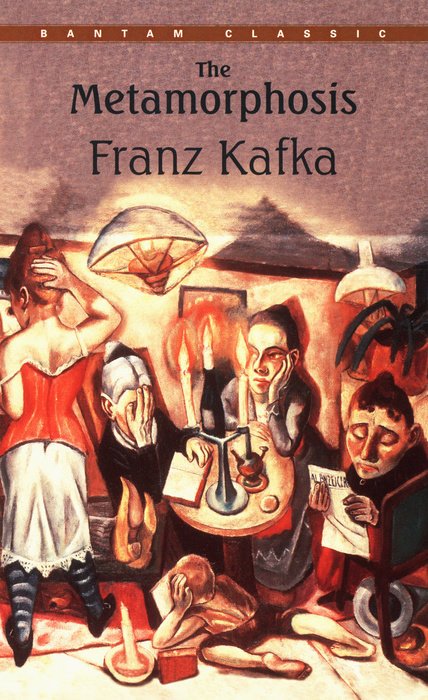Embracing the Unseen: A Reflection on Kafka’s The Metamorphosis
When I first picked up Franz Kafka’s The Metamorphosis, little did I know that the tale of Gregor Samsa’s grotesque transformation would echo my own journey of coming out as a gay man. In the summer of 2021—a time marked by revelations and struggles—I found myself poring over Gregor’s unsettling metamorphosis with an urgency that felt almost personal. Kafka’s vivid, symbolic narrative gripped me from the start, revealing not just the absurdity of Gregor’s plight, but reflecting my own exasperated dance of acceptance and rejection within a family steeped in conservative beliefs.
Kafka weaves a haunting story where Gregor awakens to discover he has transformed into a monstrous insect, an absurdity that provides a profound commentary on alienation. As I navigated my own familial tensions—having recently declared my identity amidst a storm of silence and rejection—I felt an unsettling sense of kinship with Gregor. His isolation resonated so deeply that his plight transformed into a mirror reflecting my own anxieties about acceptance and the overwhelming fear of familial estrangement.
At the heart of The Metamorphosis is not just Gregor’s physical transformation, but the emotional metamorphosis of those around him. His family’s initial concern quickly devolves into horror and ultimately, neglect. They knock on the door, demanding answers but retreating in revulsion upon discovering his new form, mirroring the way my family tiptoes around my identity. The pivotal moment when Gregor’s sister tentatively enters his room, only to shun him in disgust, felt eerily familiar. It’s a reminder of how, in the quest for connection, one can be met with rejection, leading to an internalized sense of shame—a reality that weighs heavily on so many in the queer community.
Kafka’s writing is both stark and surreal, echoing the absurdity of reality itself. The prose flows fluidly, each word weighed carefully, like the burden Gregor carries in his new body. Phrases such as “pressed upright against the door and listening” encapsulate Gregor’s desperate yearning for connection, mirroring my own unconscious eavesdropping on family conversations, seeking any glimmer of acceptance. Kafka’s meticulous attention to psychological detail not only highlights Gregor’s suffering but also allows readers a glimpse into the familial bonds that fracture under the weight of societal expectations.
One of the most poignant aspects of Gregor’s narrative is his love for his family, even as they increasingly treat him as an abomination. This delicate balance between love and rejection resonates deeply with my experience. Despite the silenced conversations, I hold onto hope that someday my loved ones will see the person I am on the inside, beyond the "bug" they perceive me to be. It’s this thread of hope interwoven with despair that makes Kafka’s narrative all the more striking.
In concluding my reflection, I find myself urging anyone grappling with the tension between their identity and familial acceptance to read The Metamorphosis. Kafka’s tale is more than just the story of an insect; it’s a profound exploration of what it means to be trapped by societal norms, a universal story of alienation and the longing for acceptance. This novella will resonate with anyone who has ever felt like an outsider—in thought, identity, or belief. Ultimately, it’s a resonant reminder of our shared humanity, compelling us to confront uncomfortable truths about ourselves and society.
Embracing Kafka not only offered me insight into my own struggles but also a renewed sense of solidarity with those who dare to live their truths. In the end, reading The Metamorphosis was not merely an act of literary engagement; it was a celebration of resilience, a reaffirmation that even in the most bizarre circumstances, the journey towards self-acceptance is rich with meaning and connection.







